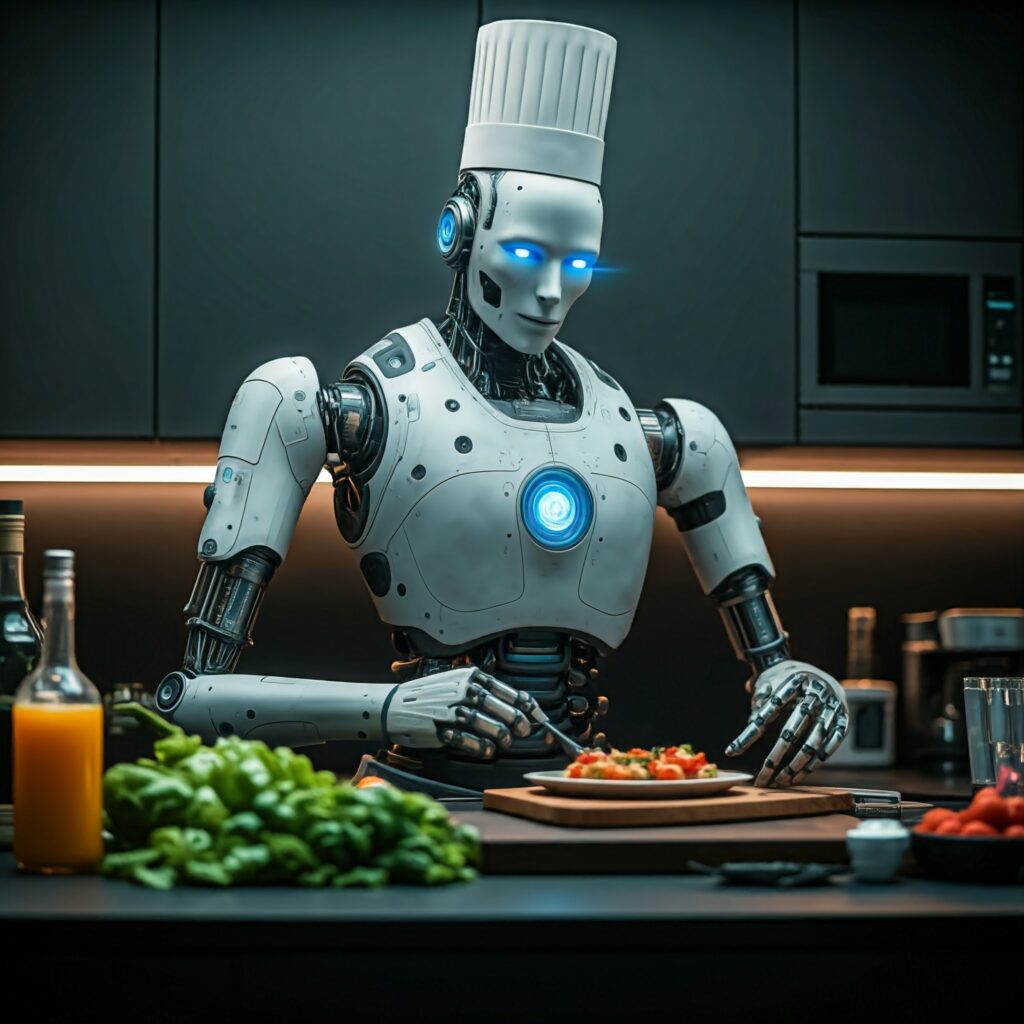AI is taking a bite out of our culinary world!
Artificial intelligence is making its mark in the most unexpected of places: our plates! It may sound like science fiction, but AI is becoming an increasingly important ingredient in the recipe for the future of food. But how can an algorithm cook a gourmet dish? And most importantly, what’s in it for us?
From Seed to Bite: AI at Every Stage
- Agriculture 4.0: High-tech drones fly over fields, analyzing each plant with a precision that would make any botanist envious. Thanks to AI, we know exactly what each crop needs, optimizing the use of water and fertilizers. This results in less waste, greater sustainability, and higher quality products.
- Quality Control: Say goodbye to blemishes on apples! Artificial vision systems, trained on thousands of images, identify defects invisible to the human eye, ensuring only the best reaches our tables.
- Intelligent Logistics: Never again will food go bad in storage! Sophisticated algorithms plan deliveries, optimizing routes and forecasting demand, minimizing food waste
In the Kitchen, AI is a Master Chef

- Personalized Recipes: Forget standard menus! AI analyzes your preferences, intolerances, and even your mood to create custom recipes, different every day.
- Robot Chefs: Mechanical arms as precise as a Swiss watch, capable of cutting, mixing, and cooking with a skill that would challenge even the best Michelin-starred chefs.
- Smart Inventory Management: Never run out of ingredients again! AI keeps track of everything in your pantry and alerts you when it’s time to go shopping, avoiding waste and unpleasant surprises.
The Future is Here: What Challenges and Opportunities? AI
AI in food is a fast-moving train, but like any innovative technology, it also presents challenges:
- Investments: Implementing these solutions requires significant financial resources. However, there are various opportunities for subsidized financing or public tenders available to companies looking to invest in digitalization. The European Innovation Council will invest €1.4 billion in 2025 in robotics, generative AI, and other strategic technologies.
- Security: Data management is crucial to ensure privacy and food safety. It is essential to rely on professionals with extensive experience in data management.
- Impact on Employment: Automation could lead to changes in the job market. The goal should always be that technology serves as an aid to humans, not a means of replacing them. Through personalized training courses, it is possible to retrain individuals for new roles that may be affected by the automation of certain processes.
But the opportunities are even greater:
- Healthier and more sustainable food: AI allows us to produce higher quality food while respecting the environment.
- Improved consumer experience: Personalized recipes, smart restaurants, and an ever-wider and more varied offer.
- Fight against food waste: More efficient management of the supply chain helps us reduce waste and feed a world that is increasingly hungry.
What does This all Mean for You?
If you work in the food industry, AI is a valuable ally for optimizing processes, improving product quality, and meeting the needs of increasingly demanding consumers.
DMBI Consultants is here to help you make the most of the potential of artificial intelligence. Contact us to find out how to revolutionize your business!
Author: Claudia Paniconi | Marketing Manager at DMBI
Photo by Pineapple Supply Co. on Unsplash





